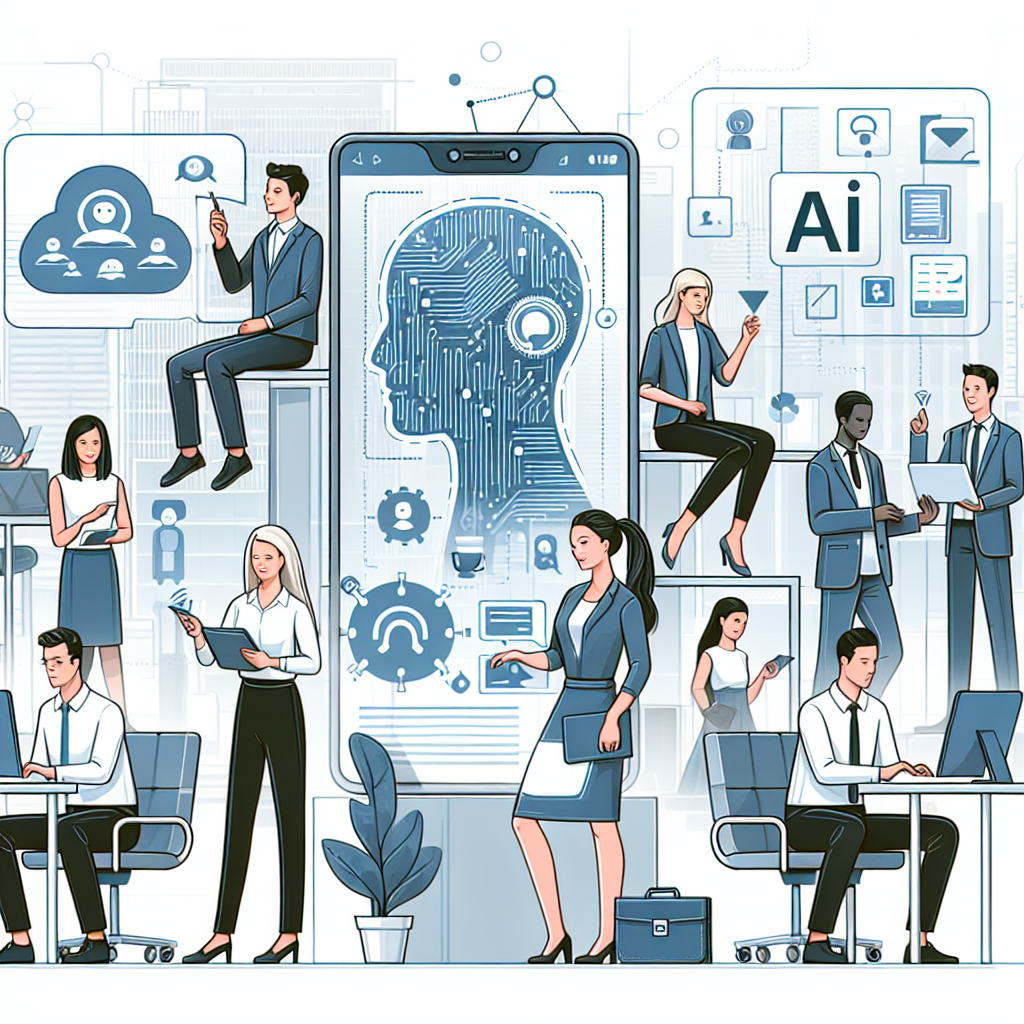Conversational AI, also known as chatbots or virtual assistants, have become increasingly popular in the workplace as a way to streamline operations and improve collaboration among employees. These intelligent systems are designed to interact with users in a natural, conversational way, using artificial intelligence and machine learning to understand and respond to queries.
In recent years, conversational AI has made significant advancements in its capabilities, making it a valuable tool for businesses looking to improve efficiency and productivity. From answering employee questions to automating repetitive tasks, conversational AI has the potential to revolutionize the way we work.
Streamlining Operations
One of the key benefits of conversational AI in the workplace is its ability to streamline operations by automating routine tasks and processes. For example, chatbots can be used to handle customer inquiries, schedule meetings, and provide information to employees, freeing up valuable time for employees to focus on more strategic tasks.
Conversational AI can also help businesses improve customer service by providing instant responses to customer queries and resolving issues quickly and efficiently. This can lead to higher customer satisfaction and loyalty, as well as increased productivity for employees who no longer have to spend time on repetitive tasks.
Furthermore, conversational AI can be integrated with existing systems and software, such as CRM platforms or project management tools, to provide a seamless experience for employees. By automating data entry and analysis, chatbots can help businesses make faster and more informed decisions, leading to improved efficiency and profitability.
Collaboration
Another key benefit of conversational AI in the workplace is its ability to improve collaboration among employees. Chatbots can be used to facilitate communication and information sharing, making it easier for team members to work together effectively.
For example, chatbots can be used to create group chats, schedule meetings, and assign tasks to team members, ensuring that everyone is on the same page and working towards a common goal. This can help improve communication and collaboration, leading to better outcomes for projects and initiatives.
Additionally, conversational AI can be used to provide training and support to employees, helping them develop new skills and improve their performance. By providing instant access to information and resources, chatbots can help employees overcome challenges and achieve their goals more effectively.
FAQs
Q: How can conversational AI improve customer service in the workplace?
A: Conversational AI can improve customer service by providing instant responses to customer queries, resolving issues quickly and efficiently, and freeing up employees to focus on more strategic tasks.
Q: Can chatbots be integrated with existing systems and software?
A: Yes, chatbots can be integrated with existing systems and software, such as CRM platforms or project management tools, to provide a seamless experience for employees and improve efficiency.
Q: How can conversational AI improve collaboration among employees?
A: Conversational AI can improve collaboration among employees by facilitating communication and information sharing, creating group chats, scheduling meetings, assigning tasks, and providing training and support.
Q: What are some examples of how businesses can use conversational AI in the workplace?
A: Businesses can use conversational AI in the workplace to automate routine tasks, improve customer service, streamline operations, and enhance collaboration among employees.
In conclusion, conversational AI has the potential to revolutionize the way we work by streamlining operations, improving collaboration, and enhancing productivity. By leveraging the power of artificial intelligence and machine learning, businesses can take advantage of chatbots and virtual assistants to automate tasks, provide instant responses to customer queries, and facilitate communication and information sharing among employees. As the technology continues to evolve, we can expect to see even greater benefits from conversational AI in the workplace in the years to come.

